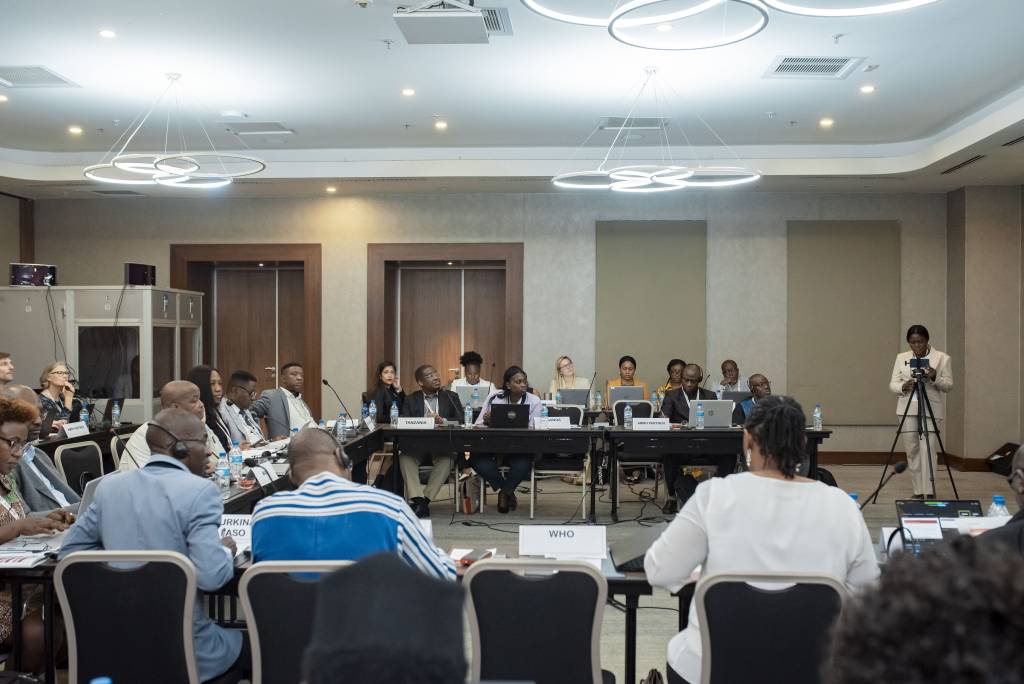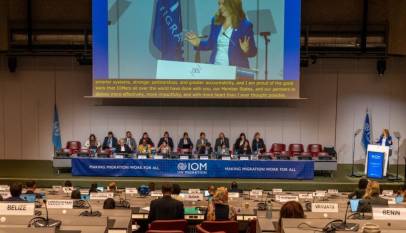AMQF Sets Network of African Reliance Laboratories’ Operationalization Roadmap
The African Medicines Quality Forum Technical Committee (AMQF) has during its Technical Committee’s meeting on the sidelines of the recent 4th African Medicines Regulatory Harmonization (AMRH) Week, set the roadmap for the operationalization of the Network of African Reliance Laboratories (NARL), a continental systematic approach to laboratory capacity strengthening to address long-term national, regional and continental level needs.

The 4th AMRH Week was held October 28- November 1, 2024, while the AMQF-TC’s meeting was held from October 28-29, 2024, in Maputo, Mozambique. The AMQF-TC’s meeting reviewed a systematic approach to strengthening laboratory capacities as part of the African Medicines Agency’s (AMA) broader plan to combat substandard and falsified (SF) medicines and evaluated its recent progress as well as outlining its strategy for the coming years.
Mr. Bonaventure Chilinde, AMQF TC Chair, told African Newspage establishing the NARL is a direct response to the challenges Africa faced during the Covid-19 pandemic, when the continent was deprioritized for medical supplies adding that the AMQF TC’s meeting had enabled the committee to come up with a unified approach to support continental efforts building on ongoing progress and lessons learned.
“As part of its mandate, the AMQF aims to unify African countries in fighting low-quality medicines through coordination and information sharing. A central coordination mechanism ensures that countries don’t work in isolation. If a country identifies a substandard product, others can be alerted, enabling them to block such products and trace their source,” the AMQF TC chair assured.
Mr Chilinde said NARL would strengthen Africa’s vaccine manufacturing efforts as part of the African Union’s mission to improve self-sufficiency in medical production and distribution on the continent. The AMQF-TC’s meeting also celebrated new ISO 17025 accreditations awarded to laboratories in Zambia and Burkina Faso. This milestone underscores the progress in achieving globally recognized quality standards in Africa.
In addition, Mr Chilinde noted the collaborative efforts with international partners, including the European Directorate for the Quality of Medicines (EDQM), which will offer free testing process participation to African laboratories over the next three years. This support, he said, allows African labs to assess their capacity at no cost, which is crucial as limited budgets often restrict their participation.
Mr Chilinde emphasized African ministers of health’s and the African Union’s commitment to prioritize National Quality Control Laboratories (NQCL) through a declaration to support NQCLs, which he described as “a big step forward for laboratory development in Africa” that will ultimately reduce the prevalence of substandard products on the market and protect public health.
“In alignment with the African Continental Free Trade Area (AfCFTA) and the African Union’s policy on pharmaceutical manufacturing, the AMQF’s work is also instrumental in promoting quality-assured, African-made medicines. There is a serious drive across the continent to manufacture high-quality products. Once Africa reaches desired quality levels, it will be able to export to international markets, proving the continent’s capability in producing reliable pharmaceuticals,” he assured.
The AMQF meeting also adopted the Terms of References (ToRs) of its TC and various subcommittees. AMQF has three specialized subcommittees focused on distinct areas: vaccine lot release, quality management systems, and market surveillance and control. These subcommittees create guidelines and oversee practices to improve national quality control laboratories (NQCLs). In 2024, they developed guidelines to improve quality control in African laboratories, reinforcing collaboration and trust among these critical institutions.
The AMQF was established in 2017 to address a critical public health issue: the prevalence of SF medical products in African markets. As a key component of the African Medicines Regulatory Harmonization (AMRH) initiative, the AMQF’s mission is to strengthen medicines quality control, harmonize testing standards, and enhance post-market surveillance across the continent. Through its work, the Forum aims to reduce SF medicines and build a foundation for a reliable, high-quality pharmaceutical market in Africa.
Statistics show that 267,000 deaths per year are linked to falsified and substandard antimalarial medicines just as World Health Organization (WHO) estimates reveal caring for people who have used falsified or substandard medical products for malaria treatment in sub-Saharan Africa costs between $12 million to $44.7 million every year, thus the significance of the AMQF’s work.













